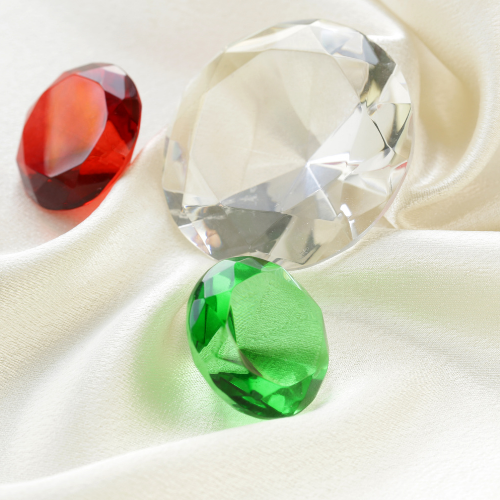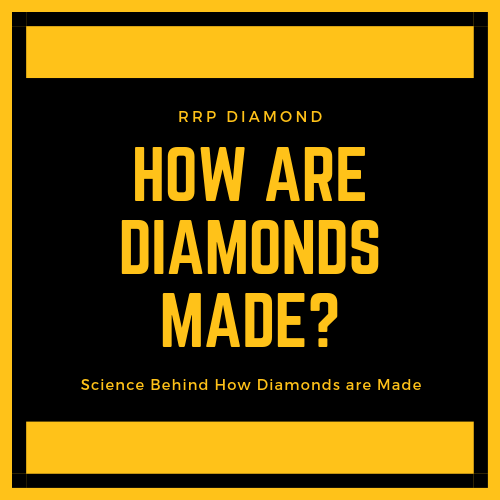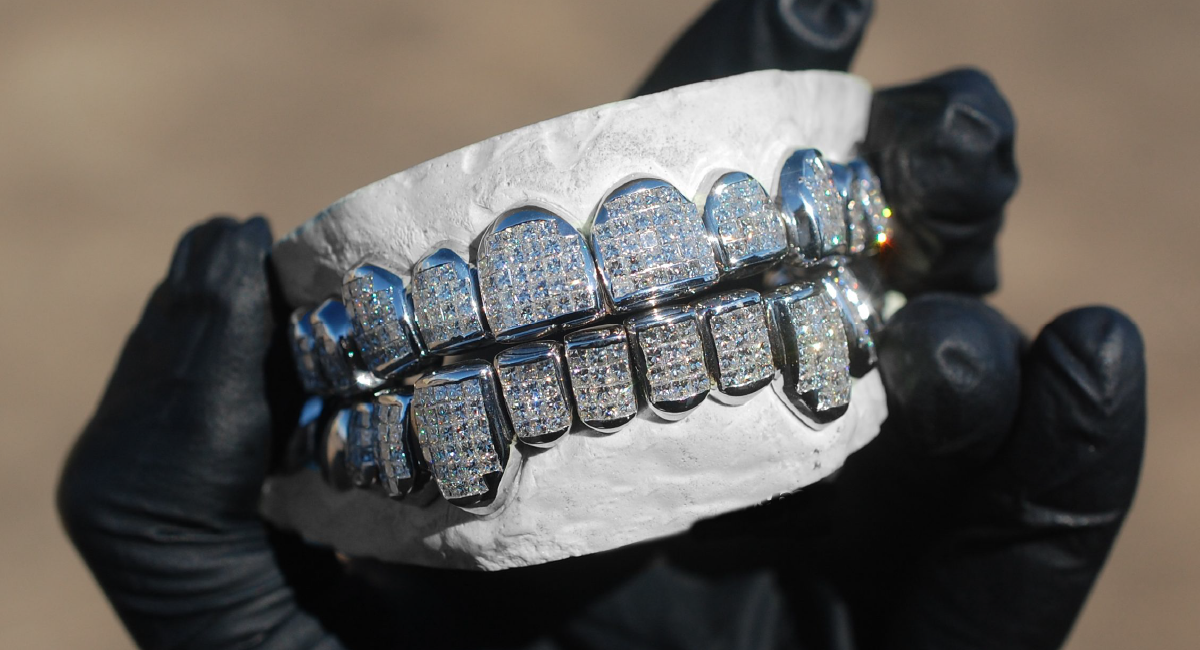
G color diamonds, colorless or yellow? Should you buy G color diamonds? Decide for yourself with this extensive guide on G color diamonds which will cover all your questions.
Aren’t diamonds just breathtaking? Sure, that and the fact of them being so diverse and minerally unique. The process of a diamond being formed is so strenuous, with high pressure and high temperatures, a rough diamond is formed.
Surely the diamond will not crack. But at times certain elements enter the carbon lattice and may cause the diamond to change color.
With the different minerals in it, a diamond can get impacted regarding clarity and color. There is a whole category of different colored diamonds that go around from grade D to Z. This is on the scale from which it can be judged, the GIA Color grade scale. The D owing to the least colored diamond, which is colorless and Z owing to the lowest grade colored diamond.
The initial grades of diamonds are colorless and near colorless, while the later ones up to Z are slightly yellow and keep on increasing in intensity. This is owing to the inclusions and minerals that add the tint to the diamonds.
Some diamonds are also naturally slightly colored, but they are rare to find in the natural state of existing diamonds.
When one chooses a diamond, they can look at various options, based on the 4Cs that make up the identity of a diamond. The 4Cs that make up the diamonds are- clarity, color, cut and carat.
Here, there shall be much more focus on the color of the diamond, especially the G color diamond. The G diamond is one of the best options when selecting colorless diamonds. Let’s see why.
What are G Color Diamonds?

Diamonds and their colors range from absolutely colorless to slightly yellowish or brownish counterparts. The scale ranges from gradients of absolute colorless to slight tints of the dullness of colors yellow and brown.
The grades of diamonds from D to F are absolutely colorless, but the ones after that are colorless to the naked eye. These diamonds appear colorless and hence are affordable counterparts to the expensive range of D- F grade diamonds.
The G grade of diamonds falls into the second category after the D-F, which is colorless, with very unnoticeable tints of yellow. This category possesses grades of G to K. Since the G grade falls between the absolute colorless and near colorless, it is affordable and still of high quality.
The G color diamond is less expensive as compared to the highest color grade of diamonds. It is the color grade that makes this diamond selection worth the money. This gem is the best option one can opt for after the colorless range. The yellow tinted color of the G-grade diamond is hard to notice unless precisely focused upon.
The G color diamonds possess a slight yellow tint that makes the diamonds appear slightly hued. Although, these diamonds do not appear colored when they are observed to the unaided eye.
The diamond when observed on the top will appear the same as the colorless diamonds. Only when these diamonds are viewed from the sides, we see that there is slight coloring in the diamonds, this is only understandable when closely observed.
Is G Color Diamond Good? Will It Be Too Yellow?

The G color diamond is the best option after the colorless range of D color to F color diamonds. It is an optimal option to choose when you are on the search for a crystal-clear diamond on a lower budget.
The G color diamonds will only have a hint of yellow in them. To state the truth, it is almost unrecognizable when seen normally. The tint will only be visible after much intentional viewing of the diamond with the naked eye and upon magnification.
The color of the diamond G is so close to the colorless diamond, that one cannot distinguish between the diamonds of colors graded around the G color. The tints are so subtle that there is no observable hue in the diamonds when observed while the gems are placed in jewelry.
There is slight warmth in the natural hue of the G colored diamonds, but the percentage of that warmth is too low and will not impact the overall view of the diamond when viewed from the jewelry point of view.
G Color Diamonds vs Other Color Grades

The G color diamonds possess a slight yellow tint, while its other counterparts of lower grade go on with an increasing percentage of yellow tint to a point it becomes too obvious. These are the grades that are near the Z color grade.
The diamonds ranging from D to F are of a range that has absolutely no color, hence they fall into the category of colorless. These colorless diamonds are of the highest price and value but are still rare.
A naturally occurring diamond is sure to have at least some sort of minimal content that imparts this color within the diamond. Although the G grade diamond falls into the category of near colorless, we can never distinguish it until seen closely at 10x-20x magnification. When seen from the side, it shows a slight tint of yellow, which does not affect the brilliance of the diamond in any way.
The grades of diamonds below G, up until J are slightly colored, hence the classification of being slightly yellow tinted otherwise. Usually, these graded diamonds are not very distinctive to a normal observer but can easily be identified by a gemologist who has experience in understanding how these diamonds are color graded.
As we go down further in the range from K, L and M color diamonds possess a faint yellow, which might be conceivable by the normal eye.
The color of the diamonds further down from these, N- R are very light yellow. Moving on, to classify the remaining section of diamonds from S to Z, they possess light yellow tints, with the Z color grade being the most tinted out of all these diamonds.
As we progress on the color grade scale, we see that the diamonds are increasing in the amount of yellow and brown tint that they possess. The diamond tint keeps on increasing as we pass on the lower grades of diamonds. The yellow tints are usually very lightly inclusive, and they do impact the diamonds certification, but not to such an extent that it makes it appear that way explicitly.
How to Make G Color Diamonds Look Whiter?
One can choose a G color diamond that looks whiter based on the cut of the diamond. The cut of the diamond is something that impacts the diamond’s brilliance, and hence its appearance of the color as well. Choosing a diamond cut that allows better brilliance but is also not a very highly observable color is crucial.
One can opt out of the round brilliant format, which is said to make the diamond appear much less yellow than other diamond cuts. The G diamond can appear more yellow or tinted for cuts like pear, oval or marquise.
When the G color diamond is cut in these cuts, there is a clear perception of the color present in the diamond. The edges and pointed parts of the diamond show more yellow than the center of the diamond, which is the main focus of such elongated diamonds.
Another option to make a G color diamond look brighter is to choose wisely the metal in which it is to be set. Once a diamond is set into a metal, it also internally reflects some color of the set metal as well. When one places a G color diamond in the setting of yellow gold, the yellow tint of the diamond gets mellowed down to the presence of a brighter yellow hue of the metal in which it has been set.
If you are considering using a yellow metal for your diamond, then buying a lesser color diamond than G-grade can also work. As the yellow metal will make the diamond look the same as that of a G color or up to that level of colorless.
Should You Buy G Color or Aim Higher?

A G color diamond is a wise choice for a person when they are looking for a brilliant shining and colorless diamond on a budget.
It seems fair to look at the budget to decide the kind of diamond you would want to buy. As it allows you to experiment with different colors, cuts and clarity, to bring out the best option within your budget.
It solely depends on your personal preference and how much you are willing to spend. If the sole preference option fits in without any monetary constraints, then G color diamond is the best option.
But, once there is a better alternative in the same price range, you can decide which characteristic of the diamond is more crucial to your intention of buying a diamond.
Usually, a G diamond is the best option that can go along with any jewelry which also fits within a particular budget.
If one is choosing a diamond for a yellow metal like gold, then G color diamond is the best option. Once we get past the choice-making process, the realization exists that the G diamonds are actually a very viable option, which will not cost you too much money. And also add extraordinary beauty to any jewelry piece that it is fitted into.
The difference between the price range of a D to G is almost that of $3000, which is worth a lot of money. If the budget is not a concern, one can certainly opt for the best diamonds in all categories of the diamond Cs.
But, if one is looking out for saving money and sticking to a budget, the G color diamond is the unbeatable and the best choice.
The differences between these are not usually too evident, or even something that would catch the attention of a viewer, unless closely observed by a gemologist. Close viewing by a normal viewer will not impact the perception in any way and will just leave them thinking that both the gems are the same.
When Is a G Color Diamond the Best Choice?

The G color diamond is the best choice as it stands between the colorless and the near colorless.
The best part is that there is a very slight difference between these two, but the budget range is quite vast. So when we choose a middle ground like the G diamond, we observe that this is actually one of the most affordable yet beautiful diamond colors.
The diamond will impart a similar beauty to the jewelry, without having to exaggerate the expense to a large extent. These diamonds are beautiful in almost all cuts and there is no visibility of the yellow tint in the diamonds by an unaided eye, even when fitted into the jewelry pieces and metals.
A G color diamond when placed all by itself, with a very neutral background, shows no signs of any yellow tints. A G color diamond is perceived as completely colorless, until it has been taken further to be compared with a diamond of higher color grading like F, E or even D.
When a G color diamond is viewed from the top, there is absolutely no doubt that it looks like a colorless diamond. Only when the G color diamond is placed and viewed from the side can a viewer say that the diamond might possess some color. That also in the slightest hue of yellow, which is almost imperceptible, until closely observed under magnification.
If you are looking through settings like halo and pave for engagement rings which will contain a G color diamond. We suggest that to attain additional brilliance try out the melee diamonds or smaller diamonds that enhance the look of the central diamond.
In this setting, the central G color diamond will be highlighted, and the internal reflections of the surrounding diamonds will make the main diamond look brighter. Hence making the gem appear even more colorless than it already is. You can use this setting with other low colored diamonds.
Conclusion
Towards the end, the certainty is evident that there is no further convincing that the G color is the best color diamond on a budget. The G color diamond is so versatile and beautiful, that an individual can pair it with any piece of jewelry.
The G diamond is the closest color diamond to colorless diamonds of color D-F, without actually being as expensive as them. These colors of diamonds cannot be perceived by the normal eye for any color tints present in the diamond and hence are always preferred.
One can also choose it if they are setting this particular diamond in metals of yellow hues, like yellow gold. If one is uncertain of other metals, they can prefer to choose a higher color. But, for yellow gold, one can never go wrong while fitting a G color diamond in it.
They help save the buyer so much on their budget, while buying something only lower in the certification of color, while virtually being the same, with no observable difference to the naked eye.


